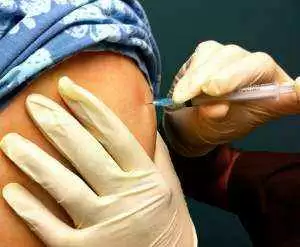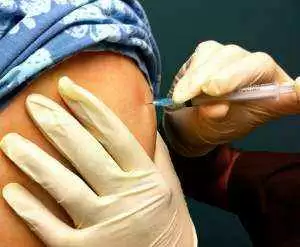
Celiac.com 07/16/2012 - Between 1984 and 1996, Sweden experienced a celiac disease epidemic: celiac disease rates shot up to four times normal levels, then dropped just as abruptly ten years later. This is interesting because it shows that there is some environmental cause for the disease, but the nature of that cause is proving hard to pinpoint.
 One proposed candidate for the cause of Sweden's celiac disease epidemic is early life vaccinations. Given that vaccinations modulate the developing immune system, they could feasibly lead to immune-related diseases (like celiac disease ,whereby the immune reaction toward gluten proteins is changed).
One proposed candidate for the cause of Sweden's celiac disease epidemic is early life vaccinations. Given that vaccinations modulate the developing immune system, they could feasibly lead to immune-related diseases (like celiac disease ,whereby the immune reaction toward gluten proteins is changed).
Celiac.com Sponsor (A12):
To test whether changes in Sweden's vaccination programs were responsible for the celiac disease epidemic, data pertaining to such vaccination program changes were gathered from the Swedish Council on Technology Assessment in Health Care and the Swedish Institute for Infectious Disease control. These data were plotted on a graph spanning 1973 to 2003 and compared against data on celiac disease rates as gathered by The National Swedish Childhood Celiac Disease Register. An incident case-referent study of infants was also performed.
To be considered for the study, children were required to have been diagnosed with celiac disease through three biopsies (one for diagnosis, one on gluten-free diet and one after gluten challenge). 475 participants qualified and were diagnosed with celiac disease as infants. For each selected child, 2 referents were chosen based on date of birth, area of residence and gender. All participants and referents were given questionnaires regarding family characteristics, infant feeding and general health. Final inclusion in the study required complete vaccination records of participants and at least one referent. 1015 total infants qualified: 392 case children and 623 referents.
The case-referent study and statistical analyses showed that changes in Swedish vaccination programs did not seem to correlate with the celiac disease epidemic. Introduction of the pertussis vaccine did coincide with a rise in celiac disease rates, however the infant case-referent study showed no association between the vaccine and celiac disease. Haemophilus influenzae type b and measles/mumps/rubella vaccines also showed no association. Diptheria/tetanus and polio vaccines covered 99% of participants, and were thus not feasible candidates. Vaccination against tuberculosis (BCG) actually showed possibility for some protective effect (further studies may explore this).
The early vaccination programs enacted by Sweden in the past few decades do not seem to correlate with the celiac disease epidemic. However, we cannot generalize these findings too much, as not all vaccines are the same, and we still don't know what factors are in play here. The results of this study show that we are still a long way from understanding exactly what environmental factors contribute to celiac disease.
Source:
- Open Original Shared Link







Recommended Comments
There are no comments to display.